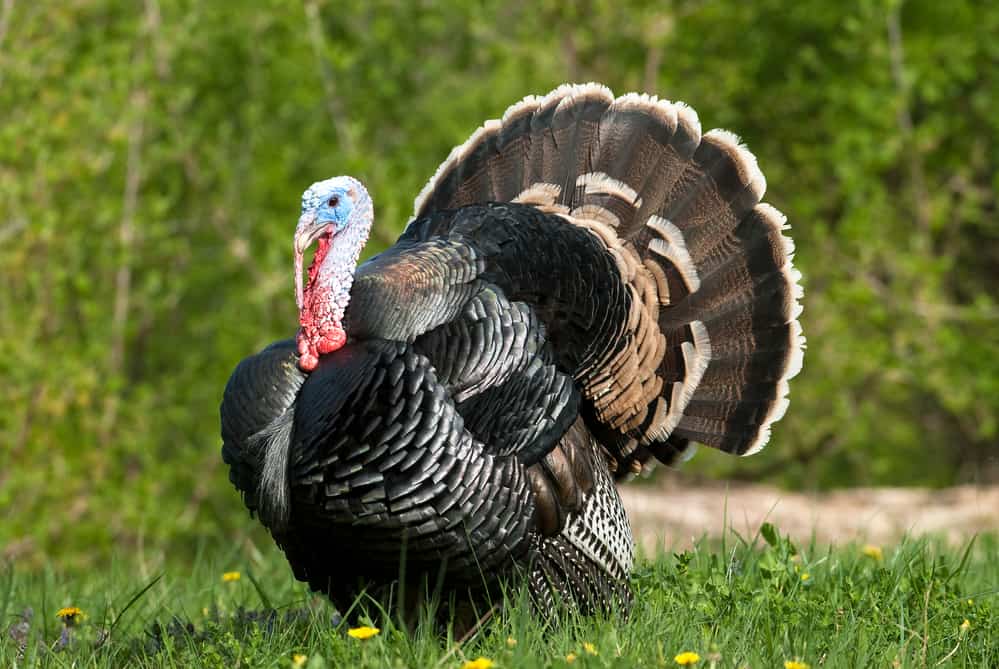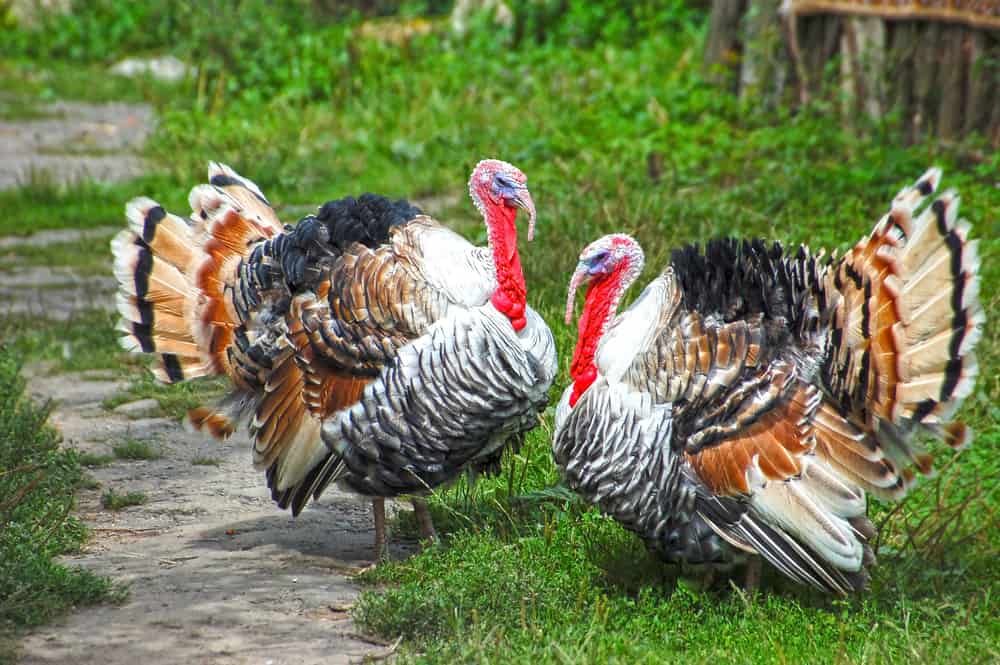
With the rising cost of food these days, and the fact that many animals are fed hormones and other chemicals, many people are turning to raise their own animals for food, including turkeys.
If you have considered raising turkeys, there are many things you need to know, particularly when it comes to feeding these birds.
Today we are going to take a look at what to feed turkeys, feeding schedules, how much water they need, and more. Let’s get started.
Feeding Turkeys is Different than Feeding Chickens
Before you go out and buy turkeys, it should be said that raising these animals is a lot different than raising chickens and other fowl.
Chicken feed should never be substituted for turkey feed, because the two birds have vastly different nutritional requirements, particularly when it comes to protein and calcium.
Turkeys require much more protein than chickens do, and their feed must contain higher protein levels.
**Looking for fresh egg production? Check out our quail eggs guide here!!!**
Feeding Free Range and Coop-Raised Turkeys

How you raise your turkeys will play a role in what you feed them.
For instance, if you decide you want to raise free-range turkeys, they should not be fed any processed foods, as they are considered organic turkeys.
They should also not be given processed vitamins, because they will no longer be considered organic.
When it comes to feeding turkeys, there are four stages to consider:
- Pre-starter feed
- Starter feed
- Grower feed
- Maintenance feed
Just after they are hatched, turkeys need help to eat and drink, and they don’t always know how to drink water or how to find their food.
Sometimes you may have to manually dip their beaks into water or feeders until they figure it out.
Newborn turkeys can’t feed themselves, so you will likely have to hand-feed them.
Pre-starter stage feeding requires the food to be very well pulverized so it is easier for young turkeys to eat.
In many cases, pulverized feed is combined with water to make it easier for the birds to digest.
This also helps the nutrients to be better absorbed into their bodies.
After the birds are around eight weeks old, you can ditch the pre-starter feed and move on to starter feed.
This should be used for about four weeks, and then you will move up to grower feeds.
A grower feed should have at least 20 percent protein, which is going to give you leaner meat.
You can add other foods to grower feed, such as grains, wheat, corn, soybeans, and rice.
Once the turkeys have been eating pre-starter, starter, and grower feeds for about 15 weeks, it is time to start them on maintenance feed, which is also referred to as finisher feed.
This type of feed is often combined with fresh fruits and vegetables.
It will also be necessary to add vitamins and minerals to their drinking water because they need certain nutrients that aren’t in their regular feed.
How Much Food Should Turkeys Have?
You are probably wondering at this point just how much food turkeys should have.
First of all, if you are raising free-range turkeys, you will need at least a half an acre of space for every 24 turkeys. Your pasture should include alfalfa or ladino clover.
Keep in mind that turkeys shouldn’t have too much alfalfa, as this can cause their meat to have a bitter flavor.
Ideally, your pasture will have a mix of feed sources, including winter wheat (must be at least six inches tall before turkeys can eat it), and plenty of legumes.
They also need to have some shade so they can get out of the afternoon sun.
Letting your turkeys forage means that they will eat about 25 percent less commercial feed than turkeys that aren’t able to forage.
This is better all around, because it is healthier for the birds, and much less expensive for you.
The fields will need to rest during the winter months, so you will have to give them commercial feed during this time.
Turkeys love greens, particularly lettuce, and it is important that you make sure they are getting plenty of greens in their diets.
Turkeys can have lettuce up to three times daily. Another delicious treat for turkeys is sour milk, believe it or not.
If you have milk in your fridge that is out of date, give it to your turkeys and they will go crazy for it.
One more thing that turkeys need in their diet is a lot of grit. In fact, they should have access to a constant supply as it helps them to better digest their food by breaking it down.
Grit should be given to turkeys starting when they are just a couple of days old, and always be part of their regular diet.
How Much Water do Turkeys Need?

There are certain amounts of water that turkeys need, and they need more at certain times of the day.
For instance, they tend to drink the most water very early in the day, usually in the first four hours.
It is important that you make sure there is plenty of water for them during this time period, especially during the warmer summer months so they don’t become dehydrated.
As turkeys become adults, they drink a lot of water. You may be surprised to learn that five adult turkeys can consume as much as a full gallon of water each day.
Related Article: How to keep ducks, a popular animal choice for homesteading.
Conclusion
While raising turkeys is a lot like raising chickens, there are several differences, particularly with how they are fed.
If you have decided that you want to raise turkeys for meat or eggs, it is important to make sure that they are receiving high protein diets, and that they get plenty of water to drink.
If you have never had any experience with turkeys in the past, it is advisable to talk with farmers and others who have raised turkeys and get their advice on feeding, vitamins, and minerals, etc. to make sure that you have birds that are going to be healthy and produce healthy meat and eggs.

